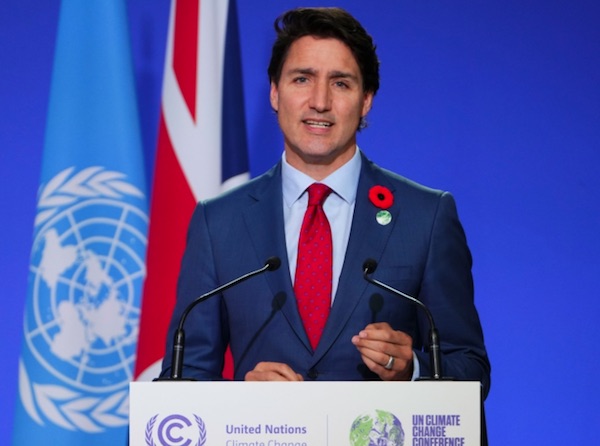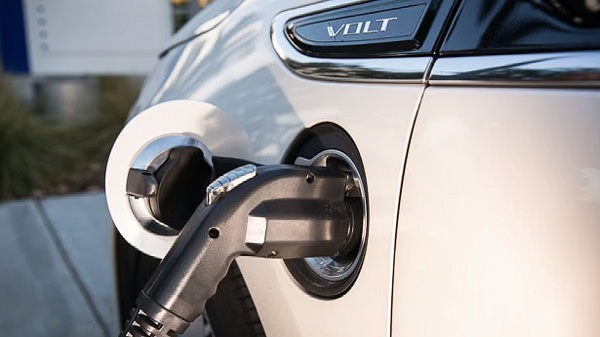 By Dan McTeague
By Dan McTeague
This past Tuesday, the Conservative Party put forward a motion in parliament calling on the Liberal government to immediately end their ban on gas-and-diesel driven Internal Combustion Engine (ICE) vehicles, which will take full effect in 2035.
Arguing for the motion, Melissa Lantsman rightly said, “Nobody is denying people the choice to drive an electric car. There is nothing wrong with that. What is wrong is the government mandating that everybody drive an electric car.”
Unfortunately for all of us, MPs voted 194-141 to keep the EV mandate in place.
The vote itself is unsurprising, since, despite Mark Carney’s campaign-long insistence that he shouldn’t have to answer for the policies of his predecessor, he was a Trudeau advisor and confidant for years, and there is virtually no daylight between their governments on any major issue.
Yes, even on the carbon tax.
Still, this will be the first time that many Canadians even hear about the ICE ban, the implementation of which begins in earnest on January 1st, just about six months from now. At that time, the government will mandate that 20 per cent of all new light-duty vehicles (passenger cars, SUVs, and pickups) must be classified as “zero-emisson,” or Electric Vehicles (EVs).
How, you might ask, does the government expect automakers to ensure that, come January, one-out-of-five car-buying Canadians will choose to purchase an Electric Vehicle? Especially since consumers have been skeptical of EVs thus far, with just 13.7 per cent sold in Canada last year.
(And, as Tristin Hopper recently pointed out, even that number is misleading. “These sales are disproportionately concentrated in a single province…. Of the 81,205 zero-emission vehicles sold in Canada in the last quarter of 2024, 49,357 were sold in Quebec.” That’s 60 per cent!)
Well, the answer to that question is that manufacturers will be required to submit annual reports to the Ministry of Environment and Climate Change, detailing their compliance with the government’s EV targets. If they don’t meet their EV sales quota, they will face significant financial penalties.
To avoid those penalties, automakers will be forced into one option. As Conservative MP Cheryl Gallant explained, “How will carmakers ensure they sell enough electric vehicles? They will do it by drastically raising the price of internal combustion vehicles!”
That’s right, their only option will be to start increasing the price of the cars and trucks Canadians want to buy, in order to force us to buy ones we don’t want to buy.
This is madness.
To reiterate what I’ve said over and over and over again, the Liberals’ EV mandate is bad policy.
It forces Canadians to buy a product that is expensive. EVs cost more than ICE vehicles, even factoring in the government subsidies on which the EV industry has perpetually relied. Ottawa’s $5,000-per-EV rebate program ran out of money six months ago and was discontinued, at which time EV numbers really began to fall off, which is why the Liberals stated desire to toss more tax dollars at bringing it back.
And it forces us to buy a product that is poorly suited for Canada. EV batteries are bad at holding a charge in the cold, and are just generally less reliable.
We don’t have the infrastructure to support this EV transition. Our electrical grid is already strained, and doesn’t have the capacity to support millions of EVs being plugged in nightly, especially as the Trudeau/Carney Liberals progressively push us to replace reliable energy sources, like oil and natural gas, with unreliable “renewables.”
On top of all that, where do they think we’re going to get all of these glorified golf carts they’re trying to force on the Canadian public? Even with the estimated $52 billion that the Trudeau and Ford governments have thrown at the industry to subsidize the manufacture of EVs in Canada, we don’t make anywhere near enough EVs to support a full-transition.
That’s likely why left-leaning outlets have started calling on Mark Carney to lift the tariff on Chinese EVs. Taking advantage of EV mandates might be smart business for China — flood the markets of gullible nations with EVs which are cheaper than what domestic manufacturers can produce, and then jack up the price once the mandates are fully implemented and they have no competition from either traditional vehicles or other EV companies.
But us going along with that scheme is the definition of bad business. Which is probably why our automakers have started to admit that the mandates are unrealistic and call for them to be repealed.
Tuesday’s vote went the wrong way for Canadians, but kudos to the Conservatives for bringing this motion forward in the first place. I only wish they had started talking about this sooner. A national campaign would have been the perfect time to call the country’s attention to a policy which people are only vaguely aware of and which, if enacted, will make all of our lives harder and more expensive.
But there’s no time like the present. The more Canadians hear about these EV mandates, the more they hate them. If we make enough noise about this, we might just be able to change course and avert disaster.
Here’s hoping.
Dan McTeague is President of Canadians for Affordable Energy.
Related
















